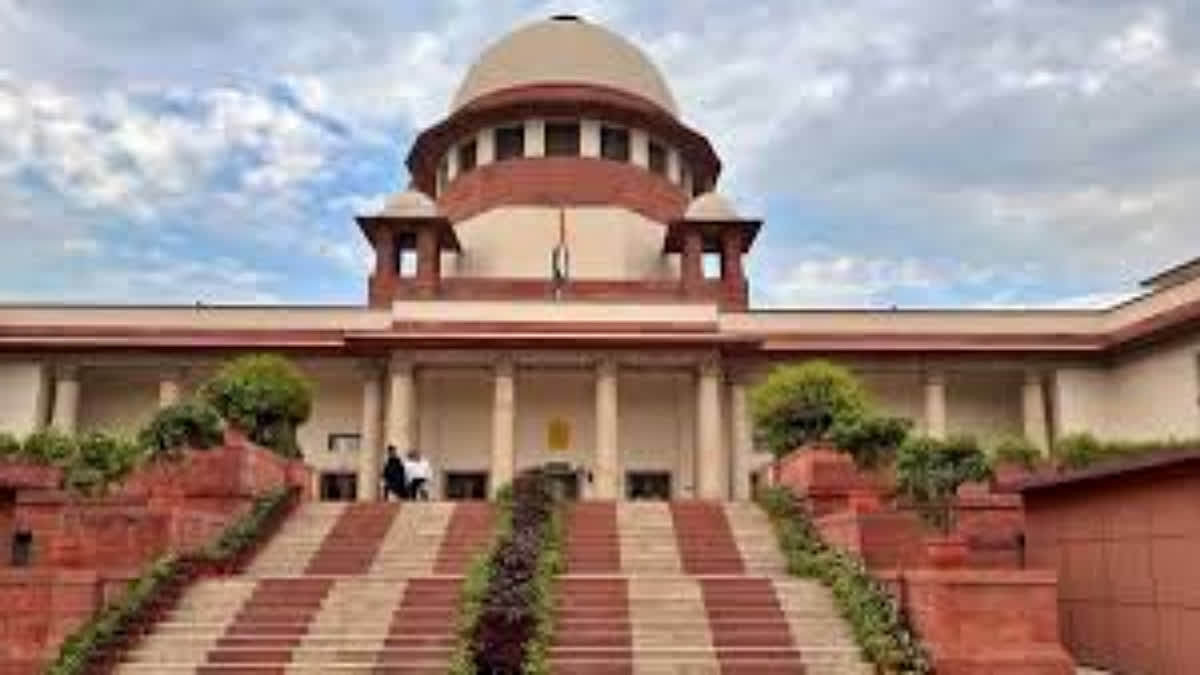New Delhi:In a stern rebuke of the controversial practice of 'bulldozer justice', the Supreme Court on Monday announced that it would lay down guidelines on a pan-India basis governing the demolition of properties. The apex court questioned how a house could be taken down just because it belonged to an accused in a criminal case.
A bench comprising Justices B R Gavai and K V Viswanathan stressed that the process has to be streamlined and added that "a pious father may have a recalcitrant son or vice versa and both should not be made to suffer each other's consequences". The apex court stressed that immovable properties can be razed only by the following procedure.
The apex court was hearing a matter regarding grievances that the properties of persons accused of some crimes have been demolished. The Supreme Court said it proposes to lay down certain guidelines on a pan-India basis so that concerns about the issues raised before the court are met. It also asked the parties involved in the matter to submit their suggestions.
Solicitor General Tushar Mehta submitted that no immovable property can be demolished just because the accused is involved in a criminal offence. He added that demolition is only possible if the structure is illegal like the construction on pavements. The apex court stressed that the property of an accused or a convict cannot be demolished and insisted that the correct procedure be followed.
Mehta said action is only taken if there is a violation of municipal laws. Justice Viswanathan asked why directions cannot be passed to avoid such demolition. He also suggested that a notice can be issued first and time can be given to answer it.
He added time can also be given to seek legal remedies. The apex court made it clear that it is not defending illegal structures and proposed to lay down guidelines for demolition across the country to resolve the issue. The bench has scheduled the matter for further hearing on September 17.
During the hearing, the Uttar Pradesh government told the bench that merely a person who has been alleged to be part of an offence can never be a ground on which his immovable property can be demolished. “The demolition of the immovable property can take place only in violation of and in accordance with the procedures prescribed in the respective applicable municipal law or law governing development authorities of the area. In other words, no immovable property can be demolished solely on the ground that the owner or occupant of such property is involved in a criminal offence”, said Mehta, reading out the affidavit filed by Uttar Pradesh.
Justice Gavai said the bench would record this statement and issue guidelines to all the state governments. Mehta said the other states can also file an affidavit. “It is the position of law; how can anybody’s house be demolished because only he is an accused? Even if he is a convict, still it cannot be (demolished) without following the procedure as prescribed by law”, said Justice Gavai.
Justice Viswanathan said, “For implementation, why can't some guidelines (be formulated)…..notice, time period, response, reply, order, time for availing legal remedies….some communication with the nodal agency. Automated reply….so that it is put in position across the states…”. “Every municipal law has a provision for demolition of unauthorized construction…”, said Justice Gavai, adding that the court will not protect any unauthorized structure on public roads and not even temples on the public roads.
The bench said the correct procedure will operate in practice if there is streamlining of the process. Senior advocate Dushyant Dave appeared for Jamiat Ulama I Hind and senior advocate C U Singh appeared for another party.
Mehta said the petitioners have projected as if a person has committed an offence and his house was demolished but the Uttar Pradesh has shown that the person was independently issued notice long back, that person did not appear.
“We should have some guidelines so that tomorrow there is no bulldozer….and so that it is documented and checked. So that neither them, people who have (made unauthorized construction) nor the authorities rely on any lacunae…”, said Justice Viswanathan.
